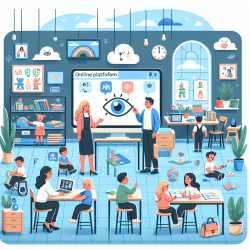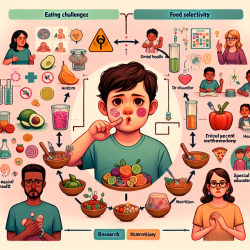Bullying in schools is a persistent issue that affects students worldwide. It not only impacts the victims but also has long-term consequences for the perpetrators. Recent research has shed light on an intriguing factor that could help mitigate this problem: Regulatory Emotional Self-Efficacy (RESE).
The Connection Between Self-Esteem and Bullying
Self-esteem plays a crucial role in adolescents' development and behavior. Low self-esteem has been linked to aggressive and antisocial behavior, which are often precursors to bullying. However, the exact mechanisms through which self-esteem influences bullying have been less clear until now.
The Mediating Role of Regulatory Emotional Self-Efficacy
The study titled "The Mediating Effect of Regulatory Emotional Self-Efficacy on the Association between Self-Esteem and School Bullying in Middle School Students: A Cross-Sectional Study" explores how RESE acts as a mediator between self-esteem and bullying. Conducted among 995 middle school students in Xi’an, China, this research provides valuable insights.
- Key Findings:
- 42% of students reported involvement in school bullying.
- Self-esteem was negatively associated with school bullying.
- RESE mediated the association between self-esteem and school bullying.
- Self-esteem influenced bullying perpetration through RESE but not victimization.
Practical Implications for Educators
The findings suggest that enhancing RESE could be a strategic approach to reducing bullying. Here are some practical steps educators can take:
- Focus on Emotional Regulation: Implement programs that teach students how to manage their emotions effectively. This can include workshops on anger management and stress reduction techniques.
- Build Self-Esteem: Encourage activities that boost students’ confidence and self-worth. Recognize achievements and provide positive feedback regularly.
- Create Supportive Environments: Foster a school climate that promotes inclusivity and respect. Ensure that students feel safe to express themselves without fear of judgment or ridicule.
- Encourage Peer Support: Develop peer mentoring programs where older students help younger ones navigate social challenges, promoting empathy and understanding.
The Importance of Further Research
This study highlights the need for further exploration into how emotional competencies influence behavior. By understanding these dynamics better, educators can develop more targeted interventions to prevent bullying.
Read the original research paper for a deeper dive into these findings and their implications for educational practice.
Conclusion
The mediating role of RESE in the relationship between self-esteem and school bullying offers a promising pathway for intervention. By focusing on emotional regulation skills, schools can create environments where all students feel valued and safe. This approach not only addresses bullying but also supports overall student well-being.
For practitioners looking to improve their skills, integrating these findings into your practice could make a significant difference in your school's climate and student outcomes.










